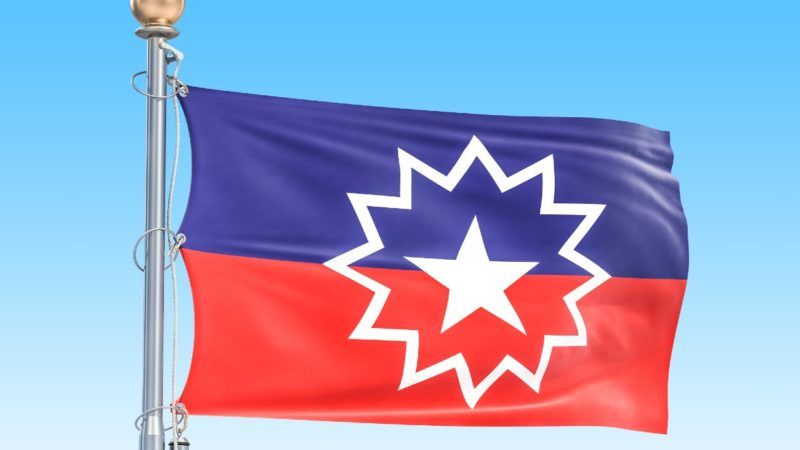Juneteenth, America's Other Independence Day, Is the Holiday We Need Right Now
Frederick Douglass: "There is not a nation on the earth guilty of practices more shocking and bloody than are the people of the United States, at this very hour."

Juneteenth, America's other day of independence, is celebrated by black Americans in commemoration of the day the last of the slaves heard the news of the Emancipation Proclamation. On June 19, 1865, two years after the proclamation, Union General Gordon Granger led 20,000 troops to Galveston, Texas, and read from Order No. 3. Jubilation followed, and the day lives on as a joyful memory of a moment when the nation's founding ideals were finally applied to black Americans.
Juneteenth is now celebrated with gatherings, cultural events, and historical storytelling in many cities, and there are several efforts to make the holiday mainstream.
Juneteenth embodies the spirit of Frederick Douglass' "What to the Slave is the Fourth of July?" speech from 1852:
What, to the American slave, is your 4th of July? I answer; a day that reveals to him, more than all other days in the year, the gross injustice and cruelty to which he is the constant victim. To him, your celebration is a sham; your boasted liberty, an unholy license; your national greatness, swelling vanity; your sounds of rejoicing are empty and heartless; your denunciation of tyrants, brass fronted impudence; your shouts of liberty and equality, hollow mockery; your prayers and hymns, your sermons and thanksgivings, with all your religious parade and solemnity, are, to Him, mere bombast, fraud, deception, impiety, and hypocrisy—a thin veil to cover up crimes which would disgrace a nation of savages. There is not a nation on the earth guilty of practices more shocking and bloody than are the people of the United States, at this very hour.
Douglass' speech has remained relevant in the 168 years since he spoke the words. And even after the formal end of state-sponsored segregation, the two Americas to which Douglass refers remained on display in many different state institutions.
When my city of Nashville needed an interstate in the 1960s, planners were faced with a few choices: potentially disrupt the all-white suburban neighborhood of Belle Meade, or place I-40 in the predominantly black North Nashville. The planners not only decided on the latter, but chose a route that cut off black businesses, churches, and schools from local residents. This decision, which may have been made in part to slow desegregation, arrested 100 years of prosperity and contributions to the music scene on Jefferson Street.
When the 1986 Anti-Drug Abuse Act established a 100-to-1 sentencing disparity between crack cocaine and powder cocaine (later reduced to an 18-to-1 disparity in 2010 by the Fair Sentencing Act), black defendants made up over 80 percent of convictions for crack cocaine convictions within 10 years, despite only accounting for approximately one-third of crack cocaine users.
When Alabama executed Nathaniel Woods in March, officials painted him as a cop killer despite the fact that he did not fire any of the bullets that took the lives of three Birmingham police officers. The actual killer said Woods was "100 percent innocent" and evidence collected by Woods' attorneys showed that there was no plot to ambush the officers. By contrast, Thomas Blanton, a white man responsible for the deaths of four little black girls in the bombing of Birmingham's 16th Street Baptist Church, is up for parole next year. The death penalty has long been unequally applied. Though half of murder victims are white, 80 percent of death sentences involve white victims and black defendants were disproportionately involved in capital punishment cases.
When just last month protesters took to the streets across the country to bring attention to police brutality and racism in policing, Minneapolis police arrested a black Latino CNN reporter on camera while his white colleague, who was in the same area, was free to work. Halfway across the country, Atlanta police officers brutalized a young black couple caught in traffic related to anti-brutality protests while the white passenger in front of them smiled and waved at the camera that captured the attack, initially unaware of the contrasting scene behind her.
As Americans finally have loud, overdue conversations about race and inequality, what better step to take towards reconciliation than to celebrate together on a day when we came one step closer to living up to our own ideals?
Show Comments (341)